Warning: Undefined array key "btn_extra_classes" in /var/www/vhosts/midmar.org/httpdocs/wp-content/themes/Essentials-child/inc/tender.php on line 11
Deprecated: strpos(): Passing null to parameter #1 ($haystack) of type string is deprecated in /var/www/vhosts/midmar.org/httpdocs/wp-content/themes/Essentials-child/inc/tender.php on line 11
Warning: Undefined array key "btn_extra_classes" in /var/www/vhosts/midmar.org/httpdocs/wp-content/themes/Essentials-child/inc/tender.php on line 21
Deprecated: strpos(): Passing null to parameter #1 ($haystack) of type string is deprecated in /var/www/vhosts/midmar.org/httpdocs/wp-content/themes/Essentials-child/inc/tender.php on line 21
Invitation to Qualified Organizations and Individuals to Submit Service Proposals:
“Mental Health and Psychosocial Support Education/Capacity Building”
The conditions and requirements, along with the proposal submission details, are provided in the following link:
https://surl.ms/18Uv
Reference Number: PRH24024
We strongly encourage all applicants to thoroughly review the provided details, including the procedures for proposal review and evaluation, and ensure submission within the specified deadline.
SCOPE OF WORK
MIDMAR Organization seeks to contract a training service provider specialized in mental health and psychosocial support education/capacity building with accredited certificates. MIDMAR Organization seeks to contract a training service provider specialized in mental health and psychosocial support education/capacity building with accredited certificates. Based on these terms of reference (TOR) documents, the eligible service provider should have the following:
- Have a team of specialized
- Proven experience in mental health interventions and culturally adapted psychotherapeutic modalities to practice.
- The ability to provide training in counseling and psychotherapy services in
- The authority and ability to provide accredited certificates for the trainees (One of the main criteria of the training service provider is the ability to provide an accredited certificate for this program).
- Ability to prepare all reports about the progress of trainees’ training and educational
Diploma courses and modules:
- Main Objective
- Advance Professional Expertise: Deepen the technical knowledge and skills of
- participants in CBT, ensuring they are equipped with the latest advancements, techniques, and understanding to address a wide range of mental health issues effectively
- Incorporate Additional Therapeutic Modalities: Introduce and integrate other therapeutic approaches that complement CBT, such as Acceptance and Commitment Therapy, trauma-informed care, Cognitive Processing therapy, and dialectical behavior therapy, to provide a more comprehensive and versatile toolkit for participants.
- Enhance Curriculum with Specialized Modules: Develop and include modules focused on complex cases, such as managing comorbidities, personality disorders, and chronic pain and fatigue, to prepare participants for the nuanced challenges they may face in their practice.
- Strengthen Ethical Practice: Emphasize the importance of ethical principles in psychotherapy. Strengthening ethical practice involves a profound dedication to enhancing transparency, empathy, and respect in every interaction, ensuring that our mental health care services are guided by principles of justice, beneficence, and nonmaleficence, thereby nurturing a culture of ethical excellence and accountability.
- Support Graduate Development: Offer ongoing support, mentorship, and advanced training opportunities to program graduates, enabling them to refine their skills, address professional challenges, and continue their development as effective mental health practitioners.
- Support Graduate Development: Offer ongoing support, mentorship, and advanced training opportunities to program graduates, enabling them to refine their skills, address professional challenges, and continue their development as effective mental health practitioners.
- Promote Personal Growth and Resilience: Focus on the personal development of participants, including fostering qualities such as cultural sensitivity, self-awareness, emotional regulation, and resilience, to enhance their therapeutic presence and effectiveness in supporting clients.
- Address Emerging Trends and Research: Update and expand the curriculum to reflect current research findings, best practices, and emerging trends in the field of CBT and mental health, ensuring the program remains at the forefront of evidence-based practice.
- Facilitate Practical Application and Supervision: Continue to provide structured opportunities for direct practice under supervision, allowing participants to apply advanced CBT techniques and integrated modalities with actual clients, thereby gaining real-world experience and feedback
- Accordingly, the Diploma will be delivered in three semesters of First Semester (140 hours): Expanded Knowledge Base
- Second Semester (170 hours): Skills Enhancement and Specialization
- Third Semester: Supervised Clinical Practice.
Certification:
The students are required to pass all three semesters successfully including the semester writing tests and the submission of all cases during the third semester to the supervisor. Including the needed percentage of the student’s attendance in lectures, training sessions, as well as supervision sessions. By the end of the third semester, the students who passed the above-mentioned conditions will receive the Diploma certificate from the training institution.
Project Approach (Teaching Process)
The second phase of the Diploma (Second Year) will consist of three teaching semesters, distributed as follows:
First Semester (140 hours): Expanded Knowledge Base
Trauma-Informed Care (30 hours): An in-depth exploration of principles and practices that recognize and respond to the effects of trauma, emphasizing physical, psychological, and emotional safety for both clients and providers. Advanced exploration of trauma-informed care practices, emphasizing creating safe therapeutic environments, recognizing signs of trauma, and applying strategies that avoid re-traumatization. Focus on integrating trauma-informed principles across all therapeutic interactions.
Ethical Practice in Mental Health Care (30 hours): Deep dive into ethical considerations specific to psychotherapy, emphasizing transparency, empathy, and respect, and how these principles apply within the context of ACT and other modalities.
Acceptance and Commitment Therapy (ACT) (40 hours): Introduction to the core principles of ACT, focusing on its six core processes, including cognitive diffusion, acceptance, contact with the present moment, observing the self, values, and committed action.
Cognitive Processing Therapy (CPT) (40 hours): Participants learn the fundamentals of CPT, focusing on its application for PTSD and trauma-related conditions by teaching clients to reframe and challenge unhelpful beliefs about trauma.
Second Semester (170 hours): Skills Enhancement and Specialization
Staff Self-Care (45 hours): Learn and implement self-care strategies aimed at preventing burnout and compassion fatigue. This includes techniques for managing stress, maintaining work-life balance, and recognizing the importance of mental and physical well-being in sustaining their ability to provide care. Incorporating the concepts of psychological safety, self-efficacy, emotional regulation, and self-regulation into the staff self-enriches the participants’ understanding and practice of self-care. This enhanced focus ensures that participants are equipped not only with advanced therapeutic skills but also with the personal competencies necessary for their well-being and professional longevity.
Therapeutic Use of Self (30 hours): Develop skills in using their own reactions, thoughts, and feelings as therapeutic tools in the counseling process. This involves reflecting on their personal experiences and how these can inform and enhance therapeutic relationships while maintaining professional boundaries.
Acceptance and Commitment Therapy (ACT) (50 hours): In-depth practice of ACT’s six core processes with complex cases, including hands-on exercises, role-playing, and case studies to refine skills in cognitive defusion, acceptance, and committed action. Strategies for weaving ACT into the fabric of therapy to address a wide range of mental health issues.
Cognitive Processing Therapy (45 hours): Skill development in delivering CPT, including identifying and challenging stuck points, cognitive restructuring, and working through trauma narratives. Focusing on identifying and challenging stuck points, processing trauma narratives, enhancing emotional awareness and regulation, building safety and trust, facilitating meaning-making and cognitive shifts, and adeptly addressing complex trauma and comorbidities for comprehensive trauma care.
Third Semester: Supervised Clinical Practice
In the third semester of Phase Two in the Comprehensive Cognitive Behavioral Therapy (CBT) program, each participant is tasked with conducting supervised clinical practice that involves applying their advanced skills in Cognitive Processing Therapy (CPT), Acceptance and Commitment Therapy (ACT), Dialectical Behavior Therapy (DBT), and trauma-informed care to real-world cases. A key component of this semester is the structured application of these therapeutic techniques, tailored to the unique needs of each case.
- Teaching/Training Hours
| Semester | Description | Hours |
| First Semester:
Expanded Knowledge Base |
Covering trauma-informed care, ethical practice, ACT, and CPT. | 140 hours |
| Second Semester:
Skills Enhancement and Specialization |
Focus on staff self-care, therapeutic use of self, advanced application of ACT, and CPT. | 170 hours |
| Third Semester:
Supervised Clinical Practice |
Real-world application managing four cases, employing tailored therapeutic techniques. | 250 hours
(Individual sessions) 48 hours (24 group supervision) |
| TOTAL | 608 hours | |
- Diploma scoring system:
The diploma scoring will be distributed according to the diploma’s three semesters as follows:
| Semester | Requirements | Evaluation Criteria | Passing Criteria |
| First Semester:
Theoretical Knowledge |
Required attendance: At least 80% of 140 learning hours | Written Exam | Must achieve at least 75% in the written exam |
| Second Semester: Training | Required attendance: 90% of 170 hours | Written Exam and Interviews (50 marks each) | Must achieve 75% combined score in written exam and interviews |
| Third Semester: Practicing | Conduct 10 individual sessions for each of the 4 cases | Practical Application and Supervisor Evaluation | Completion and satisfactory performance in managing all 4 cases, as assessed by supervisors |
01-Request For Proposal – PRH24024 02-General Administrative and Financial Binding Book- PRH24024 03-Supplier Code of Conduct – RH24024

